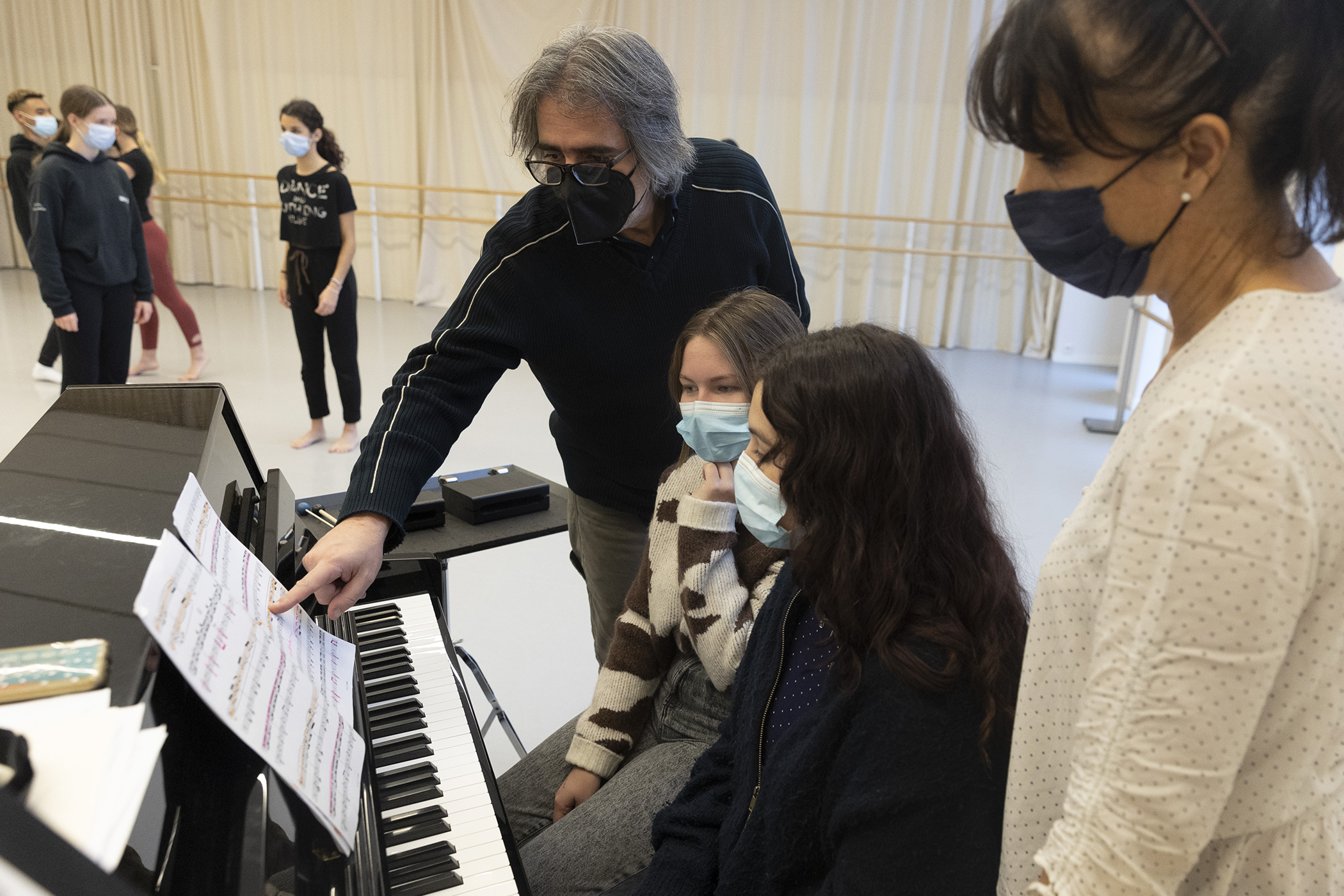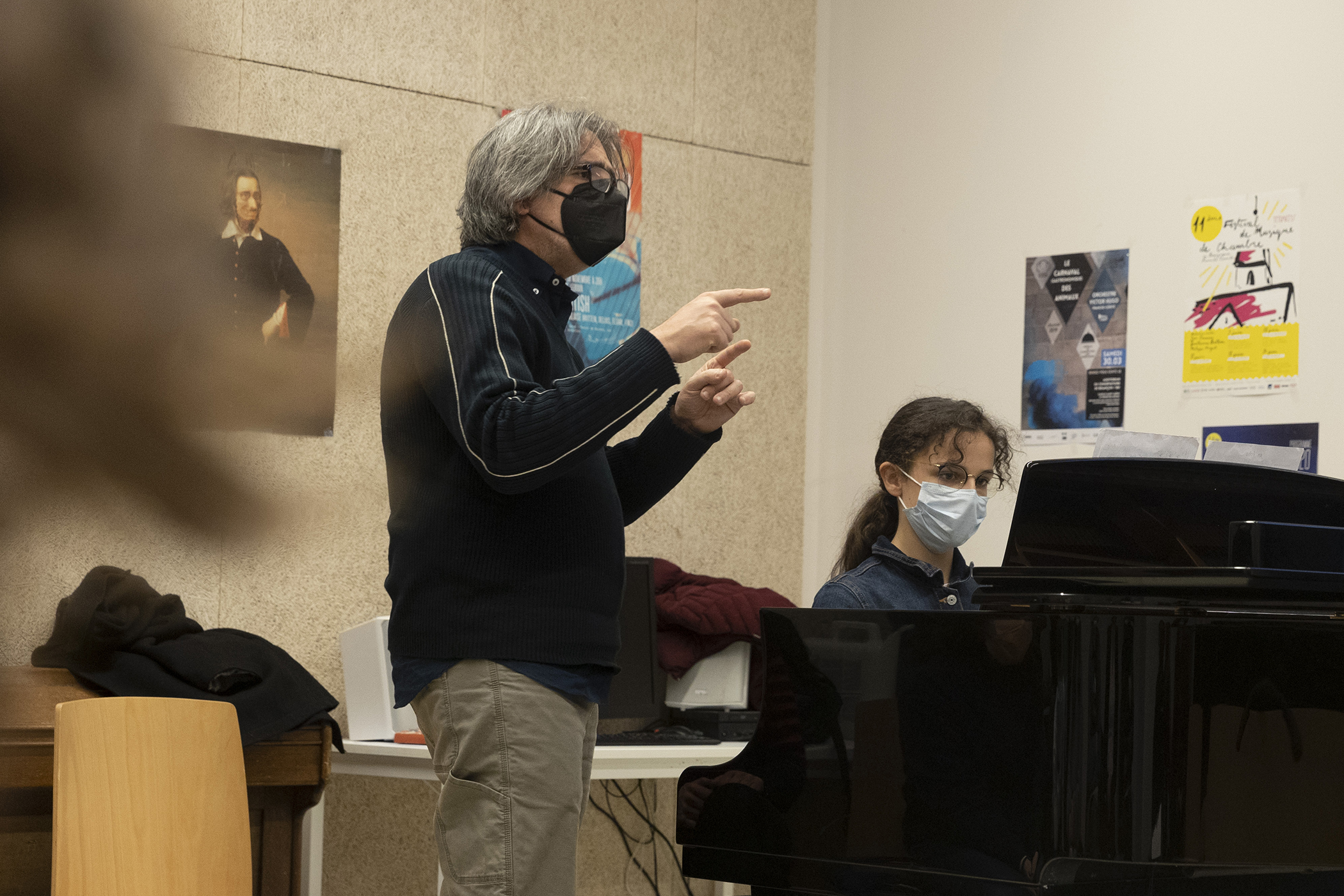The Besançon Franche-Comté International Music Festival was at the forefront of innovation in 2004 with the creation of a composer’s residence.
The idea came from the observation that modern classical music is not always accessible, and concerts with no introduction serve only to compound the difficulty often encountered in understanding the work.
The regular presence of a composer, able to tell the public about their own work throughout the year, makes the world of contemporary music and the composer more accessible.
The residence in three points
- Order of a symphonic piece
The Festival commissions each composer to produce a symphonic piece created successively by the two or three finalists of the International Competition for Young Conductors during the Final.
- Programmation of the composer’s works during the Festival
For two years, a beautiful place is reserved for the composer’s music through the Festival. Discussions with the composer and the musicians are also organized, during or in connection with concerts.
- Organization of meetings, rehearsals and masterclasses
Together with a number of local partners, the Festival holds audiences, conferences, and masterclasses for pupils at the region’s music schools and conservatories, primary schools, secondary schools, and colleges, as well as the Université de Franche-Comté.

residence 2022/2023
Alexandros Markeas is the tenth composer in residence at the Festival.
He succeeds Camille Pépin (2020/2021), Éric Tanguy (2018/2019), Philippe Hersant (2016/2017), Guillaume Connesson (2014/2015), Misato Mochizuki (2012/2013), Michael Jarrell (2010/2011), Édith Canat de Chizy (2009), Bruno Mantovani (2006/2008) and Philippe Fénelon (2004/2005).

Partners of the residence
- Conservatoire à rayonnement régional du Grand Besançon
- Conservatoire à Rayonnement Départemental de la Communauté de l’Agglomération Belfortaine (CAB) Henri Dutilleux
- Conservatoire à rayonnement départemental de Dole
- Conservatoire du Pays de Montbéliard
- Délégation académique à l’action culturelle du Rectorat de Besançon
- Sacem
The cultural action of the Sacem
Since the 1960s, Sacem has been developing a cultural activity to support musical creation, the dissemination of works, and the training and integration of young professionals. The 1985 Private Copying Act created additional resources for its approach to supporting musical life. Sacem offers support programs that take into account the specificities of the various repertoires it protects: classical contemporary music, other contemporary music (song, rock, electro, world music, etc.), music to the image, poetry, humor. The cultural action of Sacem thus contributes to the emergence of new talents, contributing ultimately to the renewal of repertoires.



